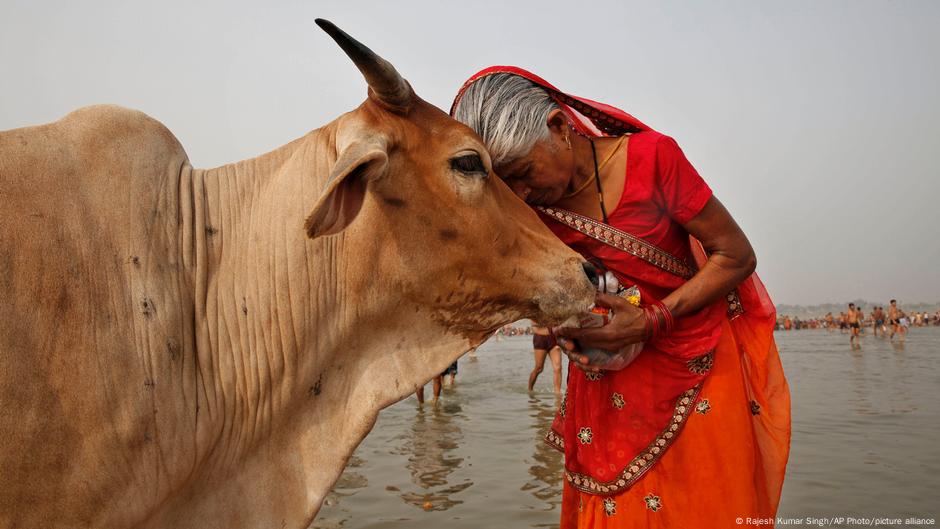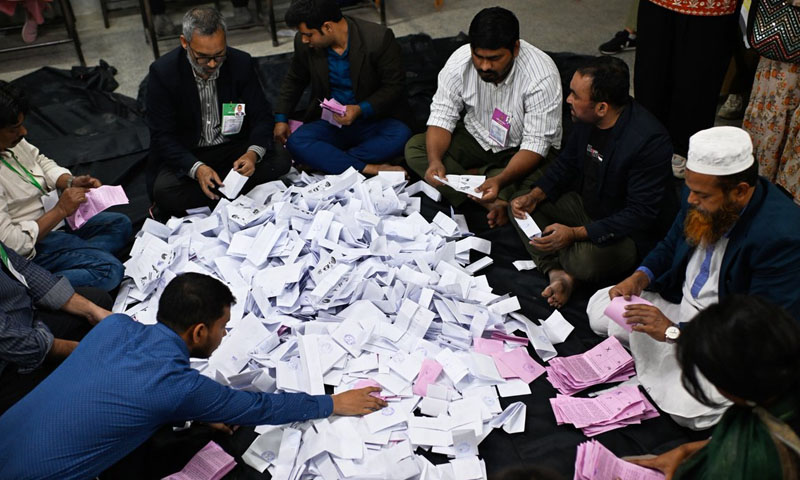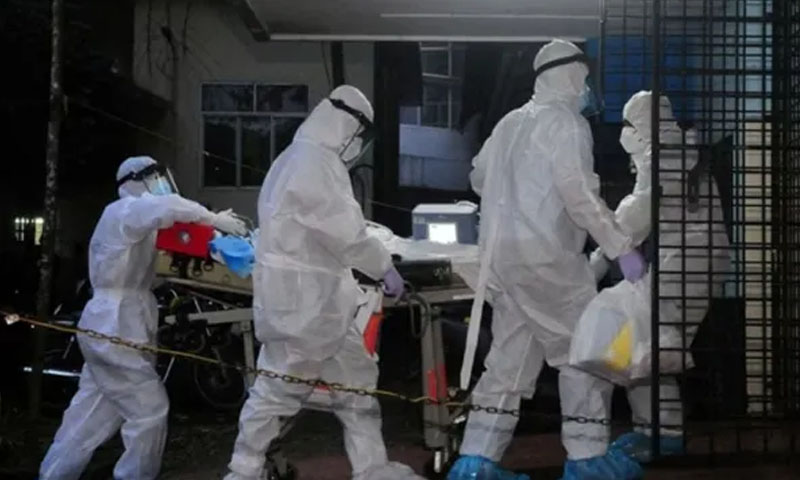- Web
- Today
The politics behind India’s beef bans
-

- DW
- Dec 24, 2024

NEW DELHI: From Assam to Kerala, India’s beef bans expose deep cultural, religious and political divides. DW explores how beef is polarising the South Asian nation.
“Beef is my favourite red meat,” says Caleb, who lives in the city of Bongaigaon in India’s northeastern state of Assam.
But now he has to contend with his state government’s mandate banning the consumption of beef in public places, including restaurants and events.
Read more: Bangladesh tells India it wants Sheikh Hasina back for ‘judicial process’
In 2021, the Bharatiya Janata Party (BJP) government in Assam had already banned the sale of beef and beef products in areas predominantly inhabited by non-beef-eating communities or near temples.
“The government is depriving me of my freedom to choose what I eat,” Caleb says. “And it deliberately attacks my dietary rights, which is not constitutional at all.”
While people like Caleb can still buy beef and eat it at home, for many who are unable to consume it at home, beef is off the menu.
How is beef polarising?
In India, beef is a contentious subject because cows are sacred to the majority Hindus.
Yet, at the same time, it is a part of the diets of Muslims, Christians, some Indigenous communities, and Dalits, a historically marginalised group from the lowest level of India’s centuries-old discriminatory caste hierarchy.
Regionally, beef consumption is negligible in northern and central India, while it is culturally ingrained in states like Kerala and Goa, and much of the northeastern region.
At present, 20 out of India’s 28 states have various laws regulating cow slaughter, including prohibitions on the slaughter or sale of cow meat.
India’s beef bans have been a polarising issue — intersecting religion with culture, and politics.
The recent ban in Assam, framed as part of a larger narrative of cow protection, has reignited debates on the implications of such laws on India’s multicultural identity, freedom of choice and economy.
Enforcing religious ideology?
Beyond its cultural symbolism, beef bans have been weaponised in political contexts, with deadly violence following them as self-styled cow vigilantes seek to enforce these bans.
The US State Department’s 2023 report on religious freedom cited examples of attacks against Muslims in India, incidents triggered by allegations that Muslim men were participating in the slaughter of cows or beef trading.
The Indian government, however, slammed the report as “deeply biased” and said it reflected “one-sided projection of issues.” New Delhi also denies discriminating against minorities, and says its policies aim to benefit all Indians.
Aparna Parikh, assistant professor of Asian Studies at Penn State University, has researched India’s contemporary beef ban and ensuing violence. A ban on beef in India is deeply tied to its cultural and historical context, where reverence for cows and avoiding beef are “central to a Hindu identity, more specifically an upper-caste Hindu identity,” Parikh told DW.
Beef bans, therefore, reflect the prioritisation of one religious group’s preferences over others, often justifying violence against communities that are viewed as consuming beef, she said.
“The ban is not entirely new but has taken on new forms and become much more visible, and weaponised against minority groups in the last few years.”
The politics of beef
These cultural and ideological tensions have also shaped the strategies of political parties, particularly the BJP.
For Prime Minister Narendra Modi’s ruling party, its Hindu roots form a core part of its principles. Yet, the BJP has taken a selective stance on beef bans.
While the party has introduced stringent bans in several states, particularly in northern and central India, it has adopted a more tolerant approach in Goa and some northeastern states, such as Arunachal Pradesh, Nagaland, Meghalaya and Tripura.
Explaining the BJP’s approach, a journalist from Assam, who asked not to be named, said, “I believe the overall approach of the Sangh Parivar (a family of Hindu nationalist organisations, of which the BJP is a part) has been to co-opt diverse groups into the idea of Hindutva.”
“In the northeast, efforts focus on persuading tribal populations, including Christian converts, to reconnect with their ‘original’ Hindu roots,” he noted.
“As part of this strategy, they take a cautious approach in regions like the northeastern states, Goa, and Kerala, where Hindu nationalist rhetoric around food or beef bans could alienate local populations. In these areas, a more calculated and less confrontational approach is adopted to avoid clashing with local sentiments,” the journalist said.
He pointed out that in Assam, there is a noticeable shift toward a harder line, prioritising ideological assertion over regional sensitivities.
However, resistance even from within the BJP against the latest Assam beef ban highlights the polarising nature of the issue.
In neighboring Meghalaya, BJP legislator Sanbor Shullai expressed his discontent in a conversation with local media saying, “No one can dictate what people should eat. It is an individual choice. I strongly oppose this.”
In Kerala, BJP state Vice President Major Ravi called for freedom to eat what one wants.
‘Symbol of resistance’
Yamini Narayanan of Deakin University in Australia, who has authored a book on the topic of bovine politics, said that during the course of her research she found that “beef has been made to play a role in cultural identities of different Indian communities.”
Narayanan pointed out that Muslim and Dalit individuals she spoke to during her research said beef holds no special significance in their diets. However, it has been “made to assume this monumental political symbolic role now because of how beef has been weaponised against them — and hence it also becomes a tool of resistance.”
Narayanan highlighted that dairy, not beef, is the primary driver of cow slaughter, a fact often ignored in political debates.
Nutritional impact of bans
Besides the economic impact of the beef bans on traders, there is also a nutritional impact particularly on the low-income groups.
Wafa Hakim Orman of the University of Alabama in Huntsville has extensively researched the nutritional cost of beef bans in India. She pointed out that iron deficiency anemia in India is extremely high.
According to the National Family Health Survey conducted between 2019 and 2021, around 57% of women in India aged 15–49 years suffer from anemia.
In regions of India where beef consumption is culturally accepted and legally permitted, such as Kerala and Goa, it is often more affordable compared to other meat products.
“For low-income Muslims, Christians, and Dalits, beef is a key protein source. The bans lead to higher rates of moderate and severe anemia among married women aged 15-35 in these groups,” Orman said.
She called for a holistic approach that addresses anemia as a public health and nutrition problem.
The freedom to choose
In the end, maybe, the answer to resolving tensions over the issue of beef lies in India’s multicultural identity.
Read more: Weather woes to crush India’s sugar production, export hopes
Senti Wangnao a Christian woman from Nagaland married to a Hindu man from Assam, says she grew up eating beef, while her husband doesn’t.
Despite their dietary differences, Wangnao says she and her husband agree on one thing — “People should be allowed to eat whatever they want to eat.”




